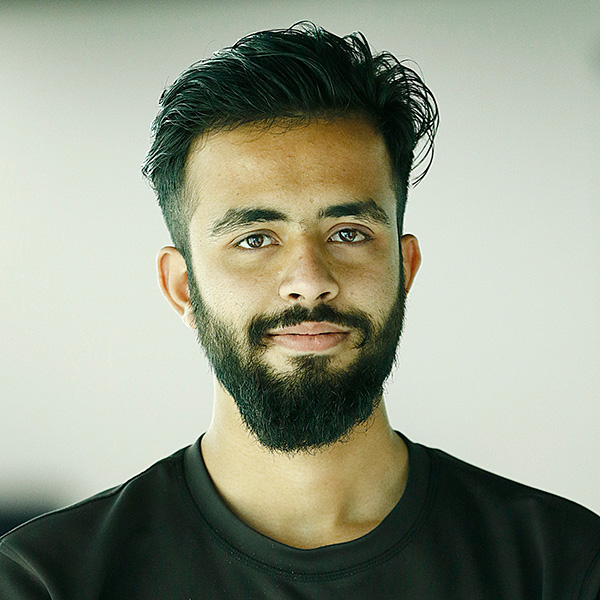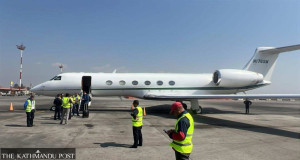National
More than 18 months after Karki report, government yet to take action against the accused
While accused officials have questioned the report’s legitimacy, experts say the government needs to take a standNayak Paudel
More than 18 months after a high-level commission formed to investigate irregularities in medical education and suggest solutions submitted its report, the government has not taken action against 43 individuals accused by the report.
On July 6 last year, the three-member commission led by Gauri Bahadur Karki, former chairperson of the Special Court, submitted its report to then-prime minister Sher Bahadur Deuba.
The late Dr Upendra Devkota and Surya Prasad Gautam, then joint-secretary at the education ministry, were the members.
In the report, the commission accused 43 individuals, including top Tribhuvan University officials, former Nepal Medical Council officials and senior doctors and professors for their dubious roles in granting affiliations to medical colleges, conducting entrance examinations, setting up fee structures, allocating seats and inspecting colleges.
But the government has neither made its report public nor has taken any action against the accused.
According to government officials, they are still seeking suggestions from the concerned authorities regarding action against the accused.
“We are consulting the Office of Attorney General and the law ministry,” Hari Lamsal, joint-secretary at the education ministry, told the Post.
However, an official at the education ministry said they were not clear who should take action against the officials accused in the report, explaining the reason behind the delay.
“Top-level officials of universities have been accused in the report and the universities are autonomous organisations in which the education ministry cannot interfere. In the case of doctors, they come under the health ministry,” said the ministry official on condition of anonymity because he was not allowed to speak to the media.
Tribhuvan University Vice-chancellor Tirtha Raj Khaniya, Rector Sudha Tripathi, Registrar Dilli Upreti, Dean at the Institute of Science and Technology Ram Prasad Khatiwada and Dean at the Faculty of Law Tara Prasad Sapkota are among those accused of committing the irregularities.
“Tribhuvan University has its senate, chaired by the prime minister, which can take action against the accused officials. But it has not,” said the official. “It is true that it’s unclear over who should take action but the government can clear the confusion, which it has not done.”
The top university officials were found to have played a dubious role in granting affiliations to the Kathmandu National Medical College despite it lacking the required infrastructure.
In the report, a copy of which was seen by the Post, the commission has suggested that the government remove Khaniya, Tripathi and Upreti from their posts and not appoint them to any government or quasi-government offices in future.
“The government can discuss in the Cabinet and clarify who should take action against whom. The prime minister holds the power to select officials for top university posts and to take action against them as well,” Karki told the Post.
The report also accused the ousted chief of the Commission for Investigation of Abuse of Authority Lokman Singh Karki to have interfered in the entrance examination of Kathmandu University.
However, the accused officials have been expressing strong reservations over the report by questioning its legitimacy.
Issuing a statement, the Tribhuvan University registrar’s office said in July last year that the report was submitted despite a lack of majority as it came as per Karki’s decision alone.
According to the registrar’s office, Gautam, a member of the commission, registered a note of dissent, while Devkota was not present during the drafting of the report and when it was submitted.
However, Karki said Devkota, who was then undergoing treatment in London, sent him an email giving his consent to submit the report.
Recently, former registrar of Nepal Medical Council Dr Nilmani Upadhyay, one of the top names among the 43 individuals accused in the report, had applied for the post of vice-chair of the Medical Education Commission.
In the report, Upadhyay is alleged to have been associated with two government organisations—the Nepalese Army Institute of Health Sciences and the Nepal Medical Council—at once and received salaries, perks and facilities from both. He is also accused of pressuring Gandaki Medical College, while he was the registrar at the council, to employ his wife.
According to experts who demand quality education, the government needs to take action against the corrupt officials rather than letting the report gather dust.
“As there is a question over the legitimacy of the Karki report, the government needs to take a stand. The government should either say it cannot take action as per the report or it should be able to take action,” Kedar Bhakta Mathema, former vice-chancellor of Tribhuvan University, told the Post.
“The government can form a committee to look into the matter. As the officials were found to have been playing a dubious role, the government needs to address the report seriously,” said Mathema, who also coordinated the high-level committee formed to recommend a national policy on medical education.
What do you think?
Dear reader, we’d like to hear from you. We regularly publish letters to the editor on contemporary issues or direct responses to something the Post has recently published. Please send your letters to [email protected] with "Letter to the Editor" in the subject line. Please include your name, location, and a contact address so one of our editors can reach out to you.




 13.12°C Kathmandu
13.12°C Kathmandu















